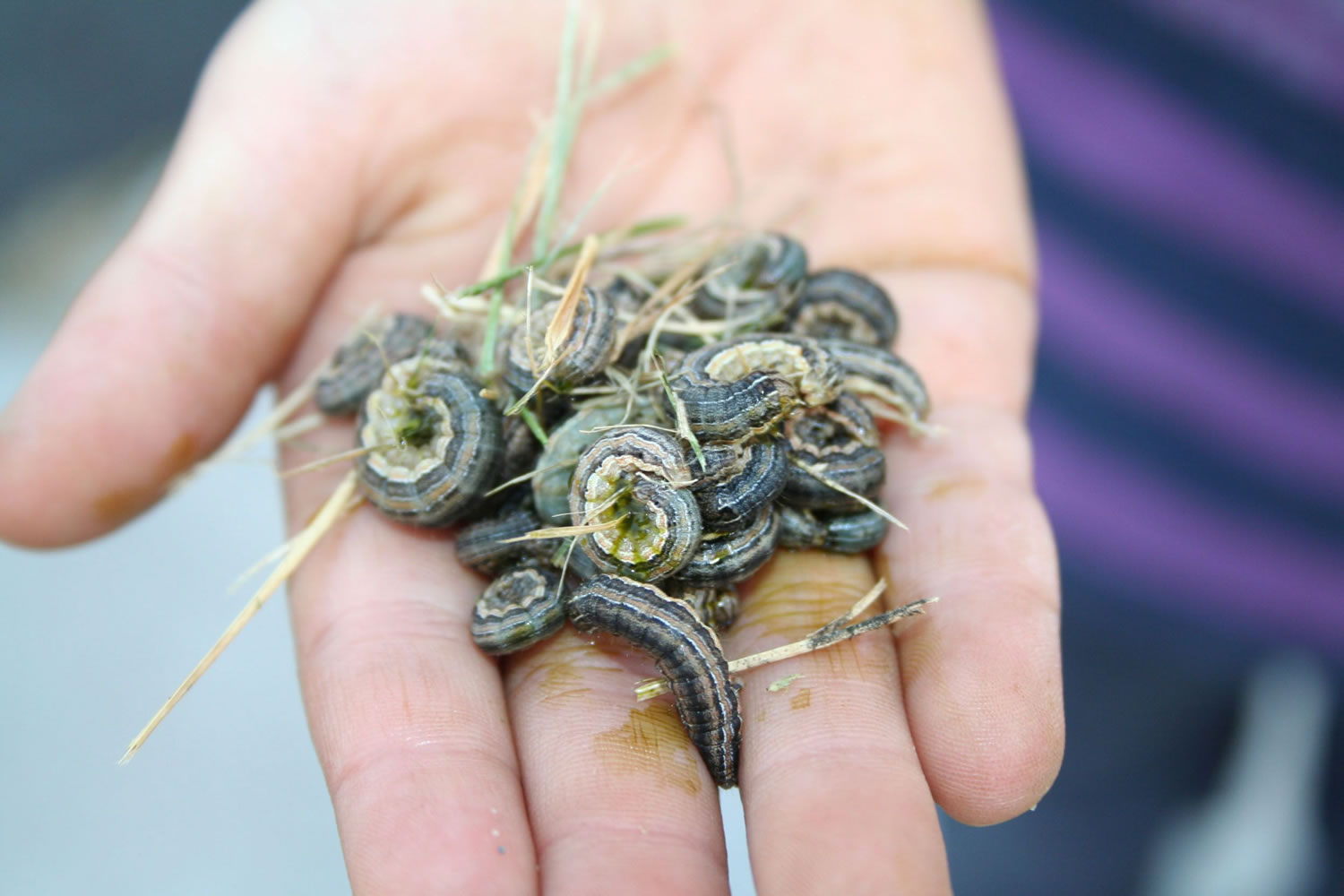Armyworms are on the march in Hermiston, with hundreds of thousands of the small caterpillars wriggling around lawns and homes across the city.
Though a fairly typical pest, the sheer number this fall is prompting dozens of calls to Oregon State University’s Hermiston Agricultural Research and Extension Center, which has caught the attention of entomologist specialist Silvia Rondon.
“They’re all over the place,” Rondon said. “That’s really a nuisance. It’s not fun to see hundreds of these by your door or porch.”
More than a nuisance, armyworms feed on everything from grass to area crops including potatoes, wheat, hay and alfalfa. They are called armyworms because they move in a mass, causing damage to yards and fields unless treated with pesticides.
With harvest mostly finished, the concern now is primarily for homeowners looking to spray for worms that bunch up by their door or porch. But time is running out for using pesticides, Rondon said, as the mature larvae prepare to burrow into the soil in order to survive the winter.
The armyworms then go into the pupal stage of their life cycle, and emerge in the spring as moths.
“If homeowners want to control the insects, they will have to do it this week,” Rondon said. “If you wait too long … it’s a waste of money, because pesticides won’t reach them.”
People should be careful to buy pesticides with the ingredient bacillus thuringiensis, or BT, that are safe for home use, Rondon said. Farmers have other options that are available to them during the growing season.
Fully grown armyworms are about 11/4 inches long, dark colored with a broad band along the top of their body. Years of heavy infestation happen usually every six years or so, Rondon said.



